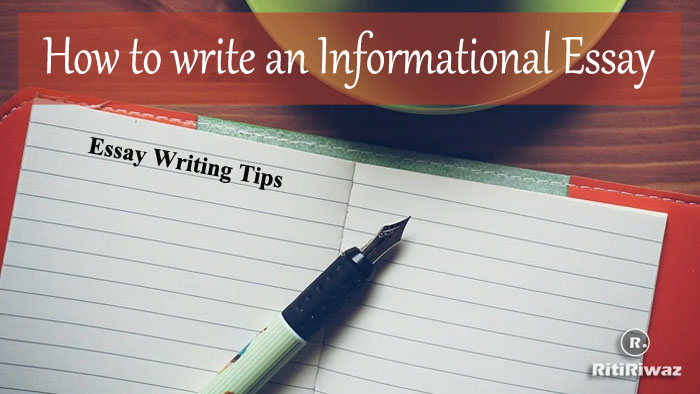How to write an informational essay

An informational essay is one of the most common types of essays you’ll use in school and college. It’s different from an argumentative or explanatory essay as you don’t state your opinion. The aim of an informational essay is to educate your audience and inform them on a topic without giving them your personal opinion. Below is a step-by-step process and outline on how to write an informational essay.
-
Choose your topic.
-
Brainstorm and come up with a list of ideas. Do a little background research on your topic to understand it better. Look through your list of potential main ideas and research each one to see which are the best fit for your essay. Your main ideas need to be related to your topic, credible and cover a large area of knowledge so you can provide strong evidence and commentary.
-
Write a powerful and sound thesis statement.
-
Further research your topic and collect facts, statistics, and commentary that you will include in your essay. Make sure you use credible and up-to-date sources such as textbooks, scholarly articles, and trustworthy websites.
-
Organize all that information into an outline in a logical manner. (There’s an outline template provided below)
-
Using your outline as a reference, write a rough draft.
-
After finishing your draft, edit your essay. Review your final draft before possibly putting it through apps such as Grammarly, spell checks, or plagiarism checkers to make sure you submit your best work.
-
Often, a work cited or bibliography is required alongside your essay. You can use online resources to covert your sources into a neat bibliography and submit that with your essay.
Essay Outline
Introduction:
- Grab your reader’s attention. Begin your paragraph with a “hook” that grabs your reader’s attention.
- Anecdote/Scenario
- Direct quote
- Figure of speech
- Interesting Fact/Statistic/Statement
- Rhetorical Question
2. Introduce Topic and Background Information. Introduce the topic and give a little background information on it. What is your essay about? Why is this important?
3. State your thesis. End your introductory paragraph with your 3 main ideas (or more).
Body Paragraphs:
-
Topic Sentence. Start each of your body paragraphs with a transition and then state your main idea. It’s smart to refer back to your previous body paragraph in your topic sentence and compare & contrast the current body paragraph.
-
Name and explain. State (name) at least three pieces of evidence and provide thorough commentary (explain) for each piece of evidence.
-
Concluding Sentence. End each of your body paragraphs with a concluding sentence that restates your main idea and provides implication on the thesis.
Conclusion:
-
Restate. Restate your thesis in a fresh and final way.
-
Importance. Explain why this topic is important and relevant to you, the reader, or this world.
-
Summarize. Summarize the main topic and end with a tone of finality.
You can organize your ideas in this manner and easily convert it into a rough draft. It’s important to pay attention to three aspects of your essay: your ideas, the structure, and your use of language. Your ideas, or central claim, and main ideas, need to be straightforward and clear. Your essay should follow a multi-paragraph informational essay structure with a logical progression of ideas and transitions. As for the use of language, your essay needs to follow a constant writing style that provides exceptional diction and a clear command of English conventions. That way you can write a remarkably well-done essay.
Suggested Read: 16 Dystopian Reads You Must Try
